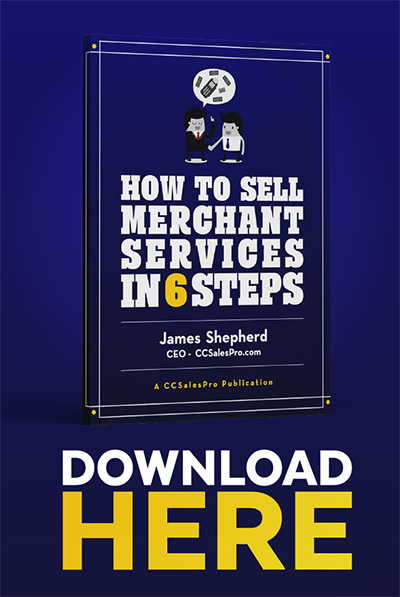There is no one way to negotiate a compensation package with an ISO/processor. But there are certain considerations I believe are essential for any 1099 agent evaluating with an ISO/processor. These are:
1. Residual income
2. Upfront bonus money
3. Free hardware
4. Customer support
Residual income
Let’s say an agent signs a merchant at flat-rate pricing of 3%, and they have a 50-50 residual split with an ISO/processor. Now let’s assume the merchant does $10,000 a month in card sales. The resulting revenue is $300. Deducting from that amount $220 (or 2.2%) to cover interchange and card-brand fees leaves $80 to be divvied up between the ISO/processor and the agent. But before the agent gets their cut, the ISO/processor deducts costs that are detailed on a document known as
Schedule A.
Schedule A costs include a BIN sponsorship fee, which usually amounts to a few basis points. Let’s say the BIN sponsorship fee is 5 basis points, or $5 a month. (A bit on the high side, but it makes the math easy.)
The Schedule A might also include per-item fees. Let’s put that at 3-cents, and assume the merchant in our example processes 200 transactions a month ($50 average ticket X 200 transactions = $10,000). That’s $6 in per-item fees.
Accounting for these two Schedule A costs, alone, (and there typically are more) the $80 margin gets reduced to $69. So, you see how Schedule A costs can impact residuals. Instead of 50% of $80, the agent in this example earns $34.50 (50% of $69). That’s why it’s important to have a clear understanding of Schedule A costs when negotiating with an ISO/processor, and how much those costs can affect your monthly expected revenue from that ISO/processor.
Upfront Bonuses
Upfront bonuses can be great, but they come at a cost. Any ISO/processor offering an upfront bonus for each merchant an agent signs is going to need to recoup that money. Typically, this is accomplished through lower residual splits.
If a processor offers a $400 upfront bonus for each merchant signed, it’s a good bet the residual split will be lower than in the 50% used in the previous example. So, you need to weigh the trade-offs. Is the upfront bonus sufficient to outweigh a lower residual split?
Another consideration is
profit true-ups. A profit true-up is like a bonus. It’s a multiple of a new merchant’s monthly volume, paid the agent that signed the merchant once the merchant has been processing payments through the ISO/processor for several months.
Free Hardware
While it is not uncommon for ISOs and processors to offer
free equipment, all too often these offers are limited to only the largest accounts. This has been a head-scratcher for me, because many ISOs and processors will spend $1,000, or more, to bring in a new merchant through its inside sales team, but not when an agent already has a merchant cued up and ready to board.
PayBright, sponsor of this Merchant Sales Insight, is really big on free equipment. While some ISOs treat POS equipment like it’s a gold star available only to the most profitable customers, PayBright won’t hesitate to invest the cost of POS equipment to help an agent board a new merchant. Standard terminals, smart terminals, POS systems, whatever the merchant needs. “If it makes sense, if the account is profitable, we’re willing to provide the hardware they need for free,” Dustin Magaziner, PayBright’s Founder and CEO, explained.
Now, an agent receiving hardware that gets installed for free can expect the ISO/processor to take additional money off the top of residuals, in order to make a return on that investment. That, too, needs factored into the decision process.
Customer Support
This is possibly the most important consideration when evaluating a compensation package.
Suppose an ISO offers a 90% split, but it employs no support staff. Instead, that work falls on the agent, who generally doesn’t have the money or other resources to throw at customer service. As a result, the merchant ends up cancelling, and now the agent is getting 90% of zero.
Great customer service isn’t rocket science. Neither is it inexpensive. The reason one ISO/processor provides superior customer service and another doesn’t, has everything to do with money. The technology and staffing investments that go into providing good customer service are considerable.
PayBright excels when it comes to support. All the agents I know who work with PayBright say the company’s customer service is exceptional. “They always pick up the phone right away, whether it’s me calling or one of my merchants,” is a common comment I hear from agents.
In Conclusion
Negotiating compensation isn’t just about residual splits. Schedule A costs need to be considered. So do the trade-offs around upfront bonuses, free hardware and great customer service. As an agent, you need to decide which trade-offs make the most sense for your situation.
And if you are in the market for a new ISO, checkout visit our sponsor, PayBright, at
gopaybright.com.

.jpg)

.jpg)
